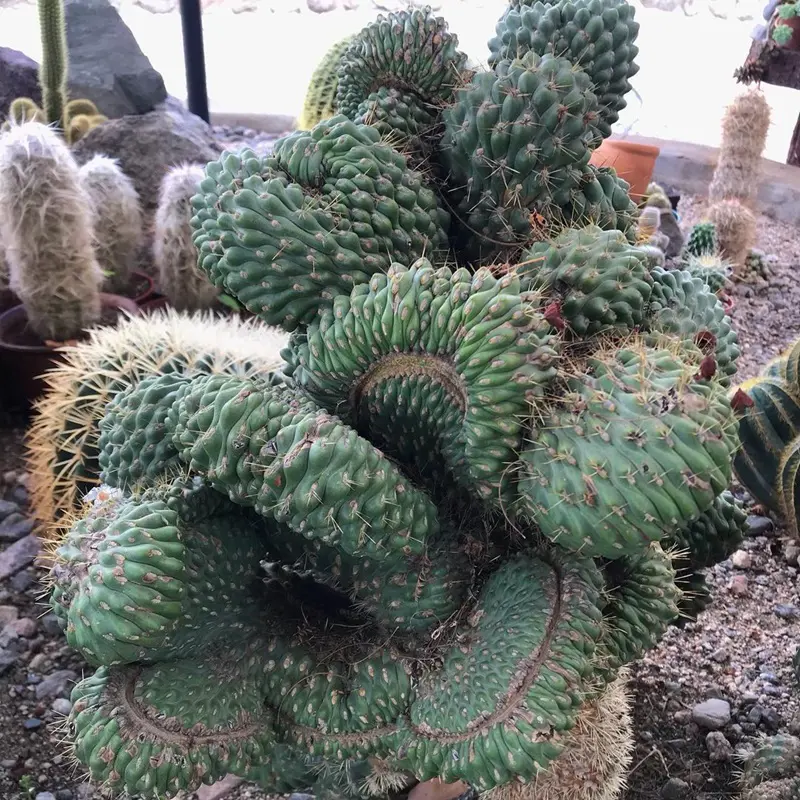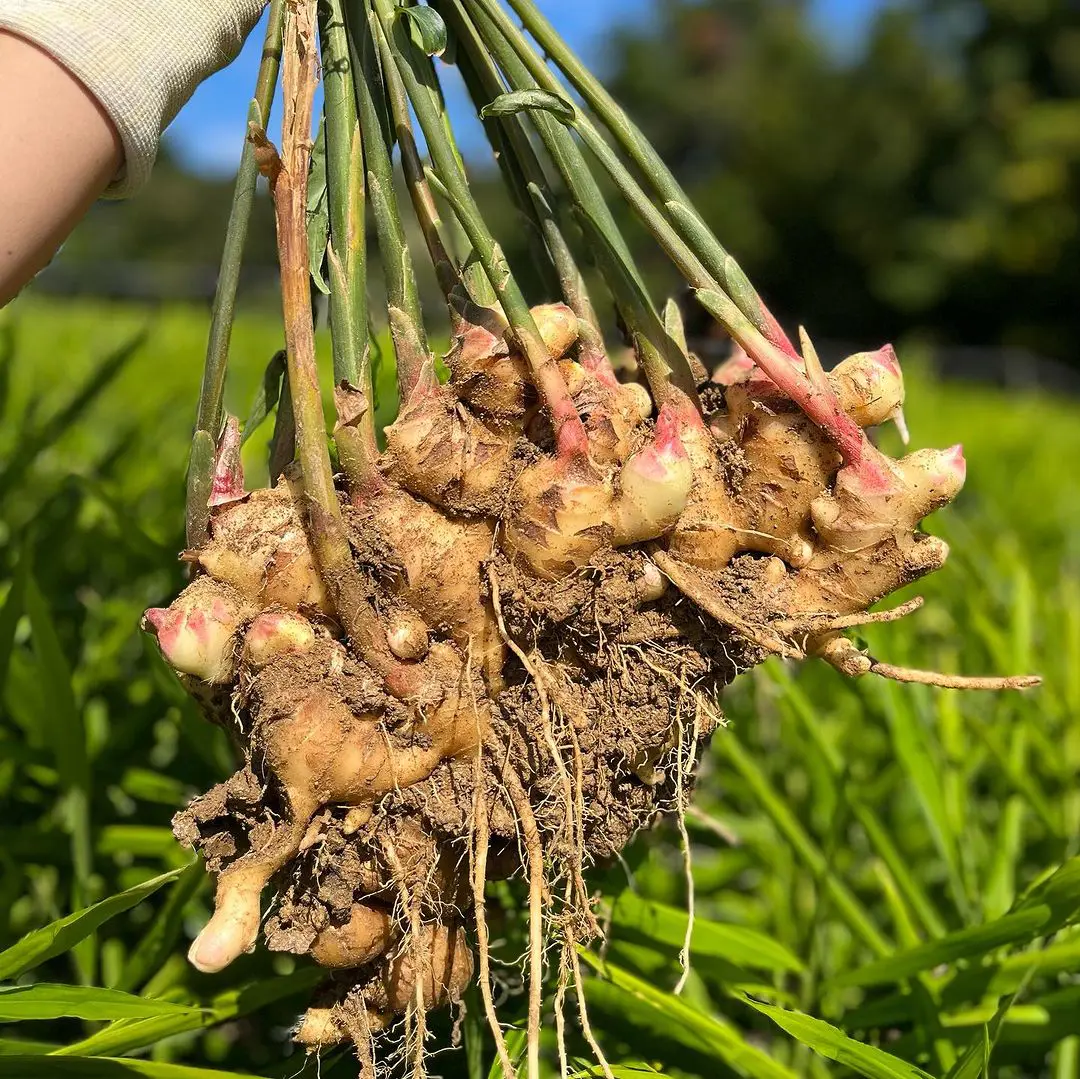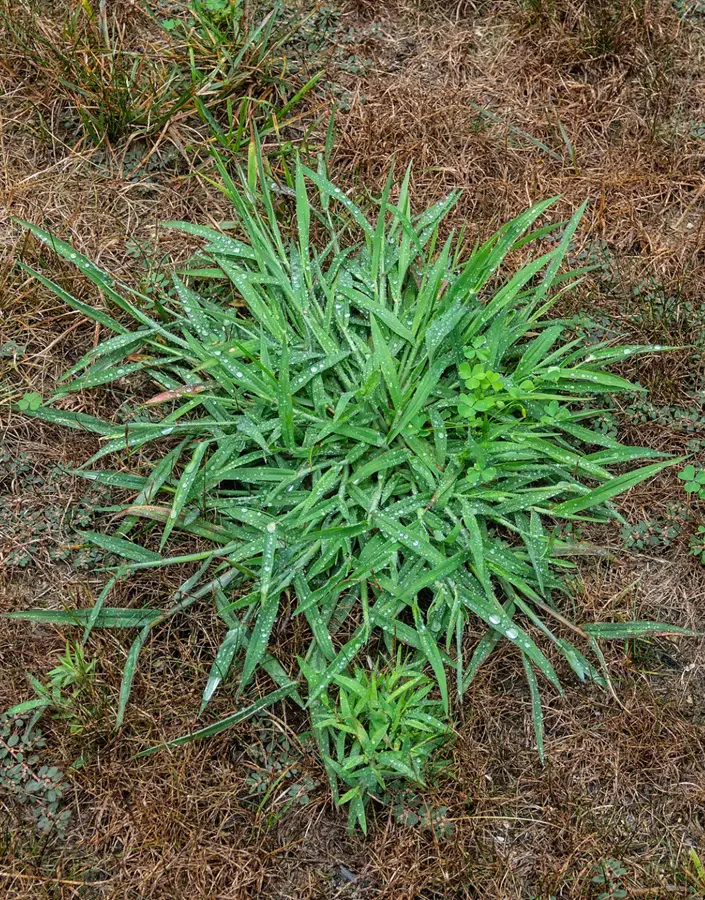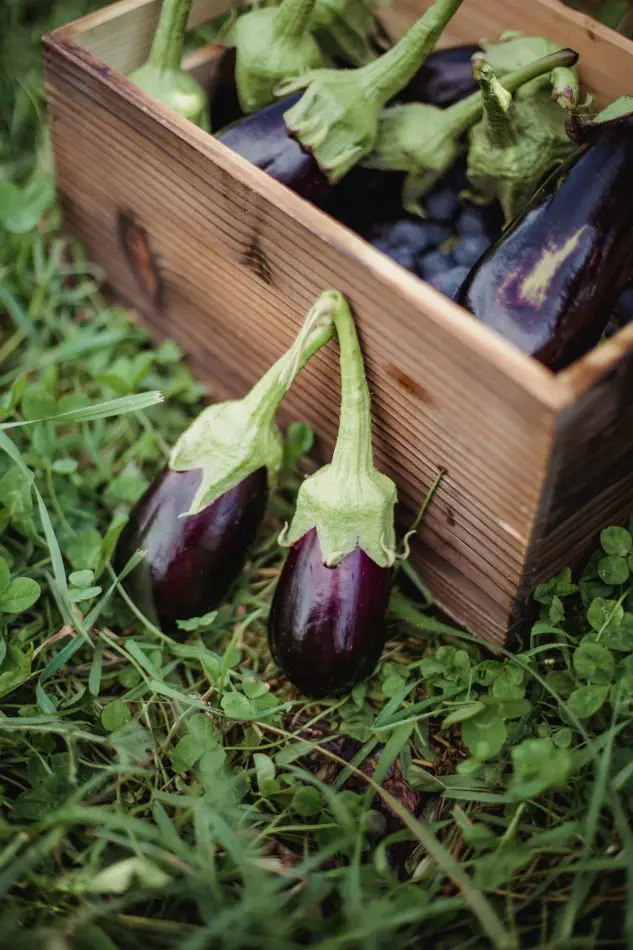
It is very rare to find people who don't love eggplants. The taste of these delicious vegetables will be even better if you grow them yourself. Eggplant, also known as aubergine or brinjals, is a versatile vegetable that can be a wonderful and healthy addition to your garden and kitchen. With its rich flavor and numerous culinary uses, eggplant is gaining a well-deserved reputation as everyone's favorite vegetable.
In this article, you will explore everything you need to know about growing and caring for eggplant, from selecting the correct variety to harvesting and storing your reward.
Choosing The Right Variety
Before you start growing eggplant, it is essential to choose the right variety for your climate and preferences. There are many different types of eggplant, ranging from small, compact varieties to larger, more traditional ones. Some popular varieties are:
-
Black Beauty:
Classic large, dark purple eggplant which is ideal for most dishes.
-
Ichiban:
A slender, Japanese variety that is tender and sweet.
-
Rosa Bianca:
An Italian heirloom with beautiful lavender and white skin, known for its mild flavor.
-
Fairy Tale:
A small, striped variety perfect for container gardening and grilling.
-
Hansel and Gretel:
These are two different varieties of eggplants that are very similar to each other. They were developed to breed out undesirable characteristics of most eggplants, such as bitterness and large seed size. However, Hansel eggplants have deep purple skin, while Gretel has white skin.
-
Little Fingers:
These eggplants look like little purple fingers.
Tips For Choosing A Variety:
-
Climate Adaptability:
Choose a variety that thrives in your climate. For instance, black beauty eggplant grows best in warm, tropical to subtropical climates, ichiban eggplant is well-suited for hotter climates but grows well in cooler climates too, rose bianca grows best in warm tropical to subtropical climates and fairy tale needs a warm, sunny spot, sheltered from cold winds.
-
Space Considerations:
If you have limited space, opt for compact varieties like Fairy Tale.
-
Culinary Use:
Think about how you plan to use the eggplant. For grilling, you might prefer a firmer variety like Black Beauty, while Rosa Bianca is great for frying and baking.
Preparing The Soil
-
Test the soil:
Use a soil testing kit to determine the pH and nutrient levels of your soil.
-
Amend the soil:
If necessary, adjust the pH by adding lime to raise it or sulfur to lower it. You can also enrich the soil with organic matter, such as compost or well-rotted manure.
-
Ensure Good Drainage:
Eggplant does not tolerate waterlogged soil. If your soil is heavy clay, consider planting in raised beds or adding sand to improve drainage.
Starting from seed:
Eggplant seeds can be started indoors 8 to 10 weeks before the last frost date. To ensure successful germination, use a thermostat-controlled seedling heat mat to maintain a soil temperature of 75 degrees F to 90 degrees F. Implant the seeds about a quarter-inch deep in a sterile seed-starting mix and keep the soil moist but not waterlogged. Once the seeds have germinated, provide supplemental light for 12 to 14 hours a day to promote bushy and strong growth.
Transplanting Seedlings
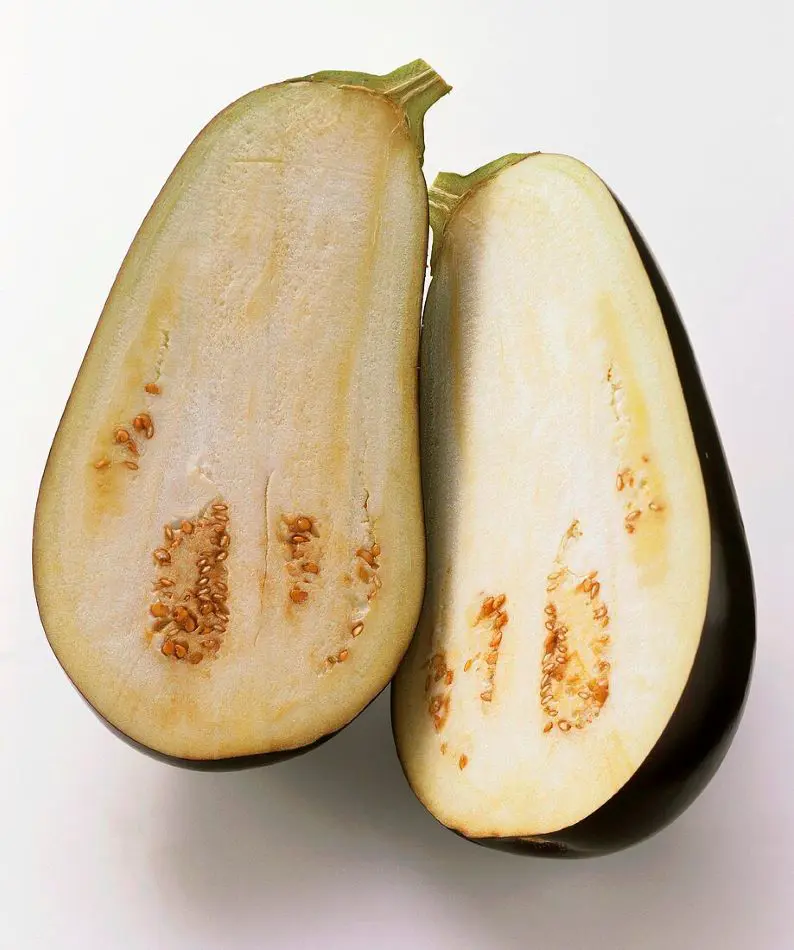
Once the seedlings have sets of two leaves, it's time to transplant them into larger containers. Use a well-draining potting mix and a container that is at least 4 inches deep. After that, harden off the seedlings by gradually exposing them to outdoor conditions over 10 days. This will prevent shock and ensure a smooth transition to outdoor growing.
Planting Outdoors:
When the soil has warmed up at least 50 degrees F and all chances of frost have passed, it's time to plant your eggplant seedlings outdoors. Choose a location that receives full sun and has well-draining soil. The eggplant plant prefers a slightly acidic to neutral soil pH, ranging from 5.5 to 7.0. So, happy a layer of compost or well-rotted manure to improve soil fertility and drainage.
Caring For Eggplants
It's not easy to have tasty eggplant after transplanting, it is necessary to care properly. By making the growing brinjals happy, you will see beautifully colored, healthy, and productive crops. Here are the tips to care for your growing eggplant:
-
Watering and Mulching:
In the process of eggplant growth, it requires consistent moisture, specifically when it is producing fruit. Water your plants deeply once or twice a week, depending on weather conditions. Mulching around the base of the plants will help to train moisture, suppress weeds, and regulate soil temperature. You can use a layer of organic mulch, such as straw or bark chips, to keep the soil cool and moist.
-
Fertilizing:
Eggplant is a heavy feeder and will benefit from regular fertilization. You use a balanced fertilizer, for instance, Miracle-Gro Performance Organics Edibles Plant Nutrition Granules, and follow the label instructions for application rates. You can also side-dress with a high-phosphorus fertilizer to promote fruiting.
-
Trimming and Support:
Eggplant plants can grow quite tall, so provide support using stakes or cages to prevent them from toppling over. Remove any weak or spindly growth to promote healthy, bushy growth. Prune the plants regularly to encourage fruiting and prevent them from becoming leggy.
-
Pest and Disease Management:
These plants are susceptible to various pests and diseases. So, it is better if you detect early and try to prevent the plants. First, look out for flea battles, aphids, and spider mites, for them, you can use insecticidal soap or neem oil as needed. Similarly, practice crop rotation and avoid overhead watering to reduce the risk of fungal diseases like verticillium wilt and powdery mildew.
Harvesting

It is necessary to know when and how to harvest your eggplants is crucial for the best flavor and texture. Here are some tips:
When To Harvest:
Most varieties are ready to gather 70-85 days after transplanting. The fruit should be firm and glossy. Furthermore, you can harvest when the fruit reaches the expected size for the variety. For example, Black Beauty should be 4-6 inches in diameter.
How To Harvest:
Cut the fruit from the plant with a sharp knife or trimming shears by leaving a short stem attached. And, eggplants bruise easily, so handle them gently to avoid damage.
Storing Eggplants
Proper storage will extend the life of your harvested eggplants.
Short-Term Storage:
If you plan to use them within a few days, keep eggplants at room temperature, away from direct sunlight. For longer storage, place eggplants in the crisper drawer of the refrigerator. Use within a week to avoid bitterness.
Long-Term Storage:
If you are considering long-term storage, you can blanch and freeze sliced eggplant for up to a year. Plus, you can preserve eggplant by canning or pickling them.
Tips And Tricks
- Use black plastic mulch to heat the soil and reduce root damage.
- Install plant supports at the time of planting to prevent toppling.
- Avoid overwatering, as this can lead to fungal diseases.
- Monitor for pests and diseases regularly and take action promptly if you notice any issues.
By following these steps and tips, you should be able to successfully grow and care for your eggplant plants. With a little patience and attention, you will be enjoying delicious, homegrown eggplant in no time.
More
What are the organic fertilizers for eggplants?
The organic fertilizers for eggplants are:
1. Dr. Earth Organic Fertilizer:
- No GMOs, chicken manure, or sludge.
- Slow-release formula.
- Contains seven strains of microbes and mycorrhizae.
- Improves drought tolerance and promotes nutrient absorption.
- Make eggplant more nutritious.
2. Burpee Organic Bone Meal:
- Pure nitrogen formula.
- Promotes healthier eggplant vegetation.
- Encourage root growth.
- Supports soil microorganisms.
- OMRI organic certified.
3. EarthPods Plant Food:
- Easy-to-insert spikes.
- Contains fungi, bacteria, and humic acids.
- Over 70 micro and macronutrients.
- Prevent blossom end rot.
- No measuring is required.
- Eco-friendly packaging.
4. Miracle-Gro Organics:
- Contains enhanced nutrition using naturally recycled material.
- Targets the roots quickly.
- Can be applied every seven to 14 days.
- Suitable for flowers and herbs too.
These organic fertilizers are designed to promote healthy growth, improve soil quality, and enhance the nutritional value of eggplants.
Difference Between Homegrown And Market Eggplants:
The difference between homegrown and market eggplant lies in several aspects:
Taste And Flavor:
Homegrown eggplants are often considered to be more flavorful and tender due to the care and attention they receive during growth and harvesting. They are typically picked at the peak of ripeness, which enhances their taste and texture.
Texture:
Homegrown eggplants tend to have a smoother and more consistent texture compared to those found in markets. This is because they are often handled with care during harvesting and storage, reducing the likelihood of bruising or damage.
Variety:
Homegrown can be grown in a variety of colors and shapes, for instance, vibrant purple, white, and small round green. This diversity is not always available in markets, where the selection might be limited to a few common varieties.
Freshness:
Market eggplants may have been stored for some time, which can affect their taste and texture. And homegrown are typically picked fresh and consumed immediately, which ensures they are at their best quality.
Nutrition:
Both homegrown and market eggplants are nutritious, but homegrown ones may have a higher nutritional value due to the care and attention given during growth. They are a good source of fiber, folate, and potassium, and are low in calories.
Overall, homegrown eggplants are generally considered to be superior in terms of taste, texture, variety, freshness, handling, and nutritional value compared to those found in markets.
Lastly, let's talk about the health benefits of eggplant:
- Rich in vitamins and minerals, for instance, vitamin C, vitamin K, vitamin B6, thiamine, niacin, magnesium, manganese, phosphorus, copper, fiber, folic acid, and potassium.
- Aids digestion
- Improves heart health
- Strengthens bones
- Prevent anemia
- Boost brain function
- Regulates blood sugar
- Improves circulation





